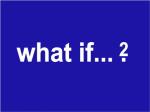Only one thing struck me more powerfully on  September 9, 2001 than my numbness and sadness over the event, and that was the wave of sympathy and support the world had for the United States. Sure, we were still the global bad boys (you can’t be the biggest kid on the block and avoid constant criticism), but others with nothing but hatred had struck a low blow and the world didn’t like it. A window had opened. We had the moral high ground and a chance to move forward; pursuing justice, certainly, but also pursuing all of what makes our nation great. The world was suddenly and strangely moldable. Had we as a nation confessionallyadmitted that we had done things to fuel anger and resentment in some people and nations, and proclaimedthat this was now over, we could have used our considerable influence, creativity, wealth and new found receptivity to help shape a new world known for justice and equality, peace and cooperation. We could have starved the flames of terrorism. Instead we fed and fanned them.
September 9, 2001 than my numbness and sadness over the event, and that was the wave of sympathy and support the world had for the United States. Sure, we were still the global bad boys (you can’t be the biggest kid on the block and avoid constant criticism), but others with nothing but hatred had struck a low blow and the world didn’t like it. A window had opened. We had the moral high ground and a chance to move forward; pursuing justice, certainly, but also pursuing all of what makes our nation great. The world was suddenly and strangely moldable. Had we as a nation confessionallyadmitted that we had done things to fuel anger and resentment in some people and nations, and proclaimedthat this was now over, we could have used our considerable influence, creativity, wealth and new found receptivity to help shape a new world known for justice and equality, peace and cooperation. We could have starved the flames of terrorism. Instead we fed and fanned them.
We have another window of possibility now. It is not nearly as wide as the one ten years ago, nor will it stay open long, but it is open. Our expenditure of enormous resources and attention on pursuing Osama bin Laden has removed him as the figurehead of terrorism. While everyone knows that terrorism is far from over because of this one man’s death, the question is, “What will theU.S.do now?” Was bin Laden just one big block to knock over and we will continue to knock over more blocks until none remain? Or will we start something new in the world?
We have removed the leader of this movement of destructiveness and now we can replace it with a leadership of hope. We can turn to the places in this world where people feel that they have no choice but to lash out at the world, and we can create opportunity. We can go to the places where justice has no voice so that lawlessness is a necessity, and we can bring accountability.
I am not a political scientist; I am a person of faith who trusts in the power of what God is doing in this world. I am sure that my proposal is naïve and unpersuasive to those who are looking at the facts of the matter, but dealing with the facts of the matter has made our world less safe and more factionalized. It is the job of every person, community and nation to do what is right. Not only because it is good for oneself, but because it is the right thing to do. This is what it means to live in hope.
And we will discover that doing what is right for the whole world (and this doesn’t just include political powers, or even people, but creation in its fullest and most inclusive sense) will be in our national interest, creating the best world for us to live in as well.


 As a pastor I need to be everybody’s pastor and I value the fact that there are many who don’t agree with me on issues but still feel our church is their home and that I can be their spiritual mentor. So I help people have conversations, provoke them to think selflessly about tough issues, and I don’t advocate political positions. I work hard at helping people feel free to figure out for themselves what their faith means in rubber meets the road places like the polling booth. So, this post isn’t meant to be political in the sense of telling people how to vote, but Mitt Romney has made me personally very angry and I cannot help but speak out.
As a pastor I need to be everybody’s pastor and I value the fact that there are many who don’t agree with me on issues but still feel our church is their home and that I can be their spiritual mentor. So I help people have conversations, provoke them to think selflessly about tough issues, and I don’t advocate political positions. I work hard at helping people feel free to figure out for themselves what their faith means in rubber meets the road places like the polling booth. So, this post isn’t meant to be political in the sense of telling people how to vote, but Mitt Romney has made me personally very angry and I cannot help but speak out.





